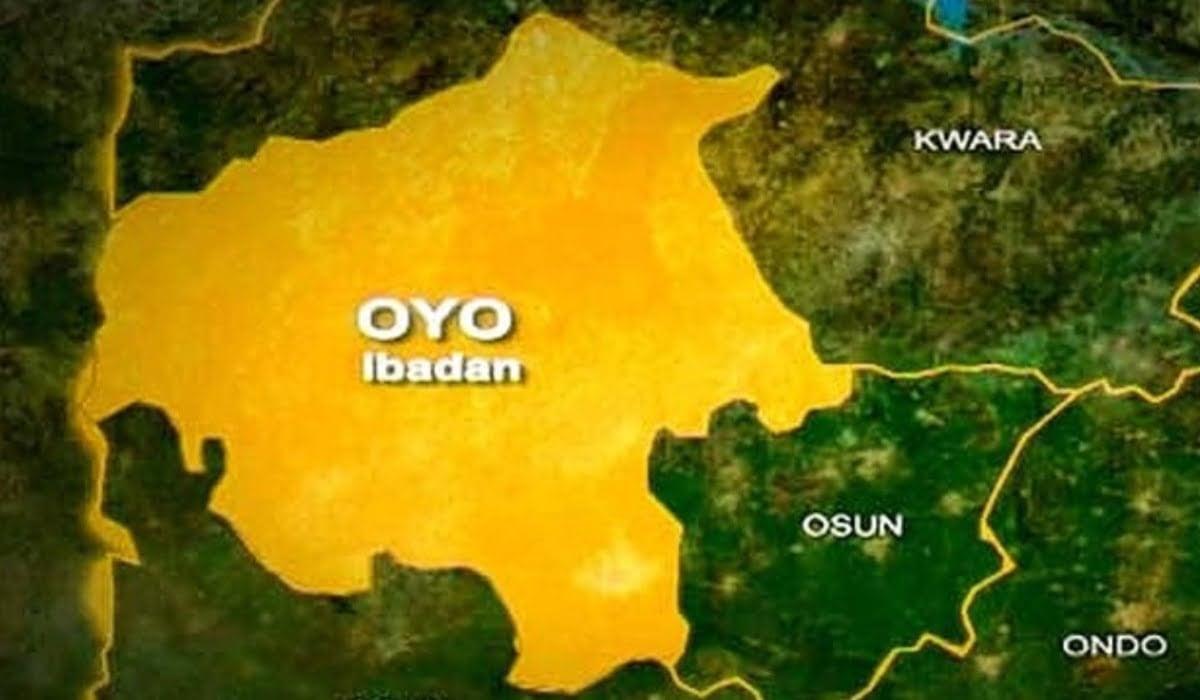By Musliudeen Adebayo
Africa-Press – Nigeria. Mrs. Mobolaji Adeoti is a civil servant who lives along Apete-Akufo road in Ido Local Government Area, Oyo State.
She currently receives a monthly salary of N70,000 and goes to work every working day for a minimum of twenty days in a month.
Prior to 29th May, 2023, Adeoti spent between N1,000 and N1,100 on transportation on a daily basis and between N20,000 and N21,000 on transportation on monthly basis from her residence to her place of work.
Adeoti can no longer spend between N1,000 and N1,100 on transportation on a daily basis anymore. She now spends between N1,700 and N2,000 on transportation on a daily basis and between N34,000 and N40,000 on transportation on a monthly basis even though her monthly salary remains N70,000.
This is the true life story of one of the salary earners in Oyo State whose way of life has been negatively affected by the sudden removal of subsidy on Premium Motor Spirit, PMS.
The above narration captures the daily experience of the majority of the salary earners, civil servants, artisans, students and entrepreneurs. Their daily income has been negatively affected by the recent increment of PMS price.
According to Adeoti, her ordeal started on 29th May, 2023, when President Bola Ahmed Tinubu announced removal of subsidy on petrol.
DAILY POST recalls that the Nigerian National Petroleum Corporation Limited, NNPCL, shortly after Tinubu’s declaration, announced that the price of PMS has been increased.
This sudden increment by NNPCL made petroleum marketers in Oyo State to adjust their own pump price.
The price was fixed between N500 and N520 depending on the company and the location.
The NNPCL, a few weeks later, also announced that it has further increased the price.
This made petroleum marketers in the State to increase their pump price again.
A litre of PMS is now being sold between N580 and N620 in the State.
Prices of goods and services have also increased drastically.
Cost of transportation, food items, goods and services are no more the way they were before 29th May.
Transporters hike fee in Ibadan, other cities
The cost of public transportation from one location to the other in the State has also increased. From Ibadan to Oyo, from Ogbomoso to Oke Ogun down to Ibarapa, the situation has remained the same.
In Ibadan, the State capital, transport fare from one location to the other has increased. From Agodi gate to Mokola has been increased to N150 as against N100, while from Dugbe to Apata which used to be N150 in May has increased to N250.
Apete to Sango which used to be N100 increased to N200, while from Mokola to Awotan has increased to between N250 and N350.
Agodi gate to Iwo Road is now N150 unlike in May when it was N100. Dugbe to University of Ibadan is now N300, instead of N200 or N250 that was obtainable in May.
In Ogbomoso, public transport which used to be N50 per short distance before 29th of May has increased to N100. From Adiatu to Taxi which used to be between N50-N70 is now between N100-N150.
DAILY POST learnt that what the people of Ibadan and their counterparts in Ogbomoso are experiencing is not far from what those in other cities or towns such as Iseyin, Eruwa, Oyo, Saki, Igbo-Ora and Tede are experiencing currently.
Traffic fizzle out on major roads, as commuters abandon vehicles for public transportation
The increment in the price of PMS is also having a negative impact on the lives of many of the commuters.
Many of them have abandoned their vehicles taking public transportation as an alternative.
It was observed that traffic which usually occurs in some areas have fizzled out.
Many major roads, streets and junctions in Ibadan now witness little traffic.
Only few cars and people are now seen in most of the areas that were usually a beehive of activities.
In the markets, many of the traders were complaining of low patronage.
Some of the areas visited recently included Podo, Iwo Road, Bashorun, Agodi gate, Bodija, Eleyele, Dugbe, Jericho Aleshinloye market and Iyaganku.
Others are Gbagi, Ogunpa, Apata, Mokola, Sango, University of Ibadan, Samonda, Apete, Awotan, Ajibode, Yemetu, Beere, Ojoo and Challenge.
Traffic that usually characterised major activities in areas like Iyaganku, University of Ibadan junction, Eleyele roundabout, Dugbe and Mokola and Sango have fizzled out.
Residents speak, call for urgent interventions
Adeoti is not the only one affected.
Other residents of the State, who spoke to our correspondent, urged governments at all levels to consider the masses.
A resident of Ring Road in Ibadan, Mr Issau Tijani said that he spends N98,000 to fill up his car tank in a month unlike in the past where he spent N30,000 monthly.
“On fuel, I used to spend N30,000 to fill up the car, now it is N98,000. Food items, monthly used to be within the range of N120,000 but it has also gone so high.
“No hope in sight as we speak because it seems the government does not even understand what we are going through.
“One would have expected the government to put in place some mid-term arrangements before deciding to remove the subsidy,” he said.
Ola Osuolale, who resides along the Ibadan-Iwo Road in Ibadan, said that his daily expenses have also increased.
“To start with food, before May, it was N18,000 but after May, it is N28,000 monthly. On transportation, before May, it was N2,000, but now it is N3,500 with little trekking,” he said.
Mr Olamilekan Babalola, who resides in Apata said, “There is no doubt about it, inflationary pressure in Nigeria at present is very alarming. Virtually, the price of everything is on the high side, it’s more than 100% increase.
“Prior to the commencement of this administration, we were complaining of the hardship not knowing what we have experienced is a tip of the iceberg. At that time, my weekly transport fare was a little above N2000 but nowadays I spend more than N4000 on a weekly basis.
“This hardship is too much because monthly income remains unchanged despite the surge in transportation cost as a result of increase in the pump price of fuel.
“To worsen the situation, prices of all food commodities skyrocketed and life has become so hard. We work like elephants but eat like ants. This is not acceptable. On a monthly basis, before May 29, I spent between N35,000 and N42,000 on food, but now I spend more than N60,000. My salary is not even up to this amount.
“Please, the government should help us out, we are groaning, they should do the needful to ameliorate this suffering.
“Indeed, I acknowledge the reason for subsidy removal as claimed but measures should have been on ground to ameliorate the pain that subsidy removal will bring before the implementation.
“Our refinery should be fixed and made to work at optimum capacity, so we won’t import the crude oil again. Naira floating policy cannot be done simultaneously with subsidy removal since we are still importing our fuel.
“It must be done one after the other to reduce the effect of subsidy removal on the populace.”
A labour activist, Comrade Andrew Emelieze, who lives at Amuloko area of Ibadan, urged the federal government to fix the moribond refineries so as to reduce the price of PMS.
“The present crop of leadership is not tilting towards a solution to the hardship confronting Nigerians.
“If they really care, they should put a price control mechanism, increase the minimum wage, fix and build more refineries and above all put in place a system that pushes the state to go into massive production and in turn boost employment.
“It is also very imperative for the government to bridge the gap between the rich and the poor. There must also be an aggressive move for the full electrification of the entire communities in the country,” he advised.
A trader, Mrs. Lawal said that many of the people in her area have abandoned their vehicles at home.
She said, “Can you see that roads are empty? Only a few people are coming out now.
“Even traders, how much are we making? People are now going to the most important events. It has also affected human relations. People do not visit their relatives now, instead, they will send messages or call.”
Our economy will run optimally despite fuel subsidy removal- Makinde
Meanwhile, the Oyo State government has promised that the State’s economy will continue to run optimally despite removal of subsidy on PMS.
Governor Seyi Makinde made this disclosure via a statement made available to DAILY POST Friday night through his Chief Press Secretary, Sulaimon Olanrewaju.
Makinde said that his government was set to begin the distribution of the food relief package to 200,000 vulnerable households.
“In the next week, we shall begin the distribution of the Food Relief Package to 200,000 vulnerable households in our State. Some have asked how we created and updated our social register that contains details of these households.
“Well, we put together the register during the COVID-19 pandemic. We deployed trusted representatives to communities in every part of our dear State. They met with and spoke to community heads who helped to identify the vulnerable in their midst. After this, we did a further verification of the data.
“As we begin the distribution across the 33 LGAs in the State, you will see for yourself how thorough the work is. We are distributing to each household 10kg of rice as well as 5kg each of beans, garri, and elubo and a bottle of groundnut oil.
“So, if you spot any funny business in your community, remember you can always reach out through this newsletter or any of the other feedback channels we have made available to you.
“Let me also use this opportunity to provide further updates on other components of the SAfER programme.
“After consultations, we have decided to earmark an additional N500 million as loans to smallholder farmers in the State through the Agricultural Credit Corporation of Oyo State (ACCOS). These low-interest loans will assist the farmers who may not be reached with the distribution of inputs to 10,000 farmers earlier announced.
“Let me also state that as more funds become available to us, we will continue to do more for our people. Recently, the Federal Government announced a facility of N4 billion for State Governments.
“This includes a N2.08 billion grant and N1.92 billion loan to be paid back after a three-month moratorium in N120 million monthly instalments.
“We have received N2 billion, and as usual, we will update you on what the funds will be utilised for once the decision is reached. The FG will also give States N1 billion worth of grains from the national grain reserve.”
For More News And Analysis About Nigeria Follow Africa-Press







